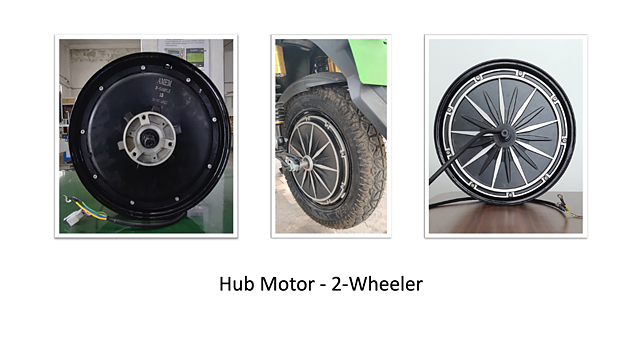
Diversifying its already existing relationship for over two decades, ANAND Group and Korean Mando Corporation have inked a new joint venture to cater to the growing demand for motor and controller for the emerging two- and three-wheeler electric vehicle market.
The two partners have agreed to leverage existing synergies, respective capabilities, and their vast experience in the auto component industry to establish their second JV in India, ANAND Mando eMobility Private Limited.
The JV, which will have ANAND Group holding a majority stake of 60%, and Mando holding 40% stake, will deliver a technologically enhanced product using Mando’s engineering capability, said a release issued by the company. Both partners felt this was the right time to enter the two- and three-wheeler powertrain electrification market in India.
It must be noted that the two companies had first collaborated in 1997, when they set-up Mando Automotive India (MAIPL) to manufacture state-of-the-art brake systems. Later in 2012, the ANAND Group acquired a stake in Mando Steering Systems India.
Building ANAND Mando eMobility
The two partners are buoyant about the government’s push for electrification in India across various vehicle segments. The new entity, ANAND Mando eMobility, will support the ‘Atmanirbhar’ initiative of the Government of India by providing a localised cost-effective alternative to imports.
The company’s new plant is coming up in Bhiwadi, Rajasthan and is being built in an area of about 60,000 sq ft with scope for future expansion. About 350-450 people will also be employed by the company. A capital investment of more than INR 50 crore is planned for deployment in the areas of product engineering, testing and manufacturing equipment over a period of three years.
From a product perspective, ANAND Mando eMobility will cater to vehicles from low-speed scooters to high-speed motorbikes and three-wheelers for both passenger and cargo applications. The company will focus on the manufacturing of a robust, reliable, and efficient powertrain in the form of a matched pair of motor and controller, for the 2/3-wheeler market, said the company.
The hub motor will be ready to be launched for two leading e2W manufacturers by October 2021, while the centre/mid-drive motor will be introduced in mid-2022, followed by a stream of variants thereafter.
From proof of concept (PoC) at Mando Korea to the product launch in India, including design, development, validation, setting-up of the manufacturing factory and start of production – all of it will be achieved in less than nine months, the company has announced. ANAND Mando eMobility envisions achieving a turnover of INR 500 crore by 2025.

Stronger collaboration
Anjali Singh, Executive Chairperson, ANAND Group said the group is conscious about the current environmental challenges and is committed towards making the world a greener place to live.
“The collaboration with Mando Corporation is in line with the key ethos of the ANAND Group’s vision – to create value sustainably through the pursuit of excellence. I am confident that this long-term association will continue to evolve by leveraging the synergies and mutual strengths to successfully create efficient products and systems for the Indian electric vehicle industry,” she said.
“The market for electric vehicle components is expected to grow at a CAGR of around 22% till 2030. ANAND Mando eMobility clearly has the engineering capability and technological knowhow to service the growing demand for motor and controller components in India,” said Jaisal Singh, Co-Chairman, Mando Automotive India.
With the kind of investments the company is making in establishing a world-class production facility and hiring the right human talent, Singh expressed confidence that the new entity will become a preferred supplier and shall achieve a turnover of INR 500 crore by 2025.
Seong Hyeon Cho, President and Representative Director, Mando Corporation said it is the endeavour and commitment at ANAND Mando eMobility to support the impending vehicle technology transition. “The varied and complex Indian driving conditions also provide us with a unique opportunity to deliver robust, reliable, and efficient powertrain products for the 2/3-wheeler market,” he said.